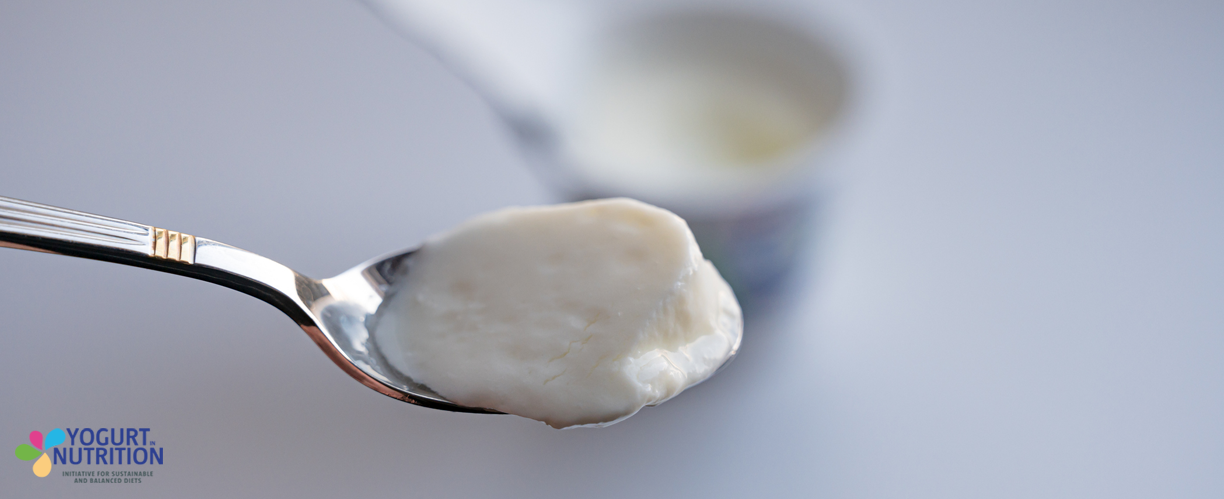Eating yogurt and probiotic fermented milk regularly may be associated with a reduced risk of certain colon cancers. Recent research suggests that specific colorectal tumors containing the gut bacterium Bifidobacterium occur less often among people who frequently eat yogurt compared to those who rarely consume it.
Colorectal cancer is a significant public health concern, and research is increasingly focused on understanding the factors that influence its development. Among these factors, diet and the intestinal microbiota are increasingly recognized for their crucial role in colorectal carcinogenesis (1).
According to the International Agency for Research on Cancer (IARC), the global burden of CRC is expected to increase by 60%, reaching more than 2.2 million new cases and 1.1 million deaths by 2030. In 2020, the incidence of CRC was estimated at approximately 1.9 million new cases worldwide (8).
Studying the impact of yogurt consumption on colorectal cancer risk, considering the presence of specific bacteria like Bifidobacterium in tumor tissues, offers a novel and potentially important perspective for the prevention of this disease (1).
Yogurt and fermented milks are well-known for theirs benefits to gut health. They typically contain probiotic bacteria including Bifidobacterium for some of them, which contribute to support digestion and the immune system. Scientists have long suspected that these bacteria may also play a role in preventing certain diseases, including colorectal cancer.
A recent study led by medical researchers at Harvard Medical School (Boston, USA) explored how long-term yogurt and probiotic fermented milk consumption influences the risk of colorectal cancer depending on the bacteria found in cancer tumors (1). Their findings suggest that regularly eating probiotic fermented milk might help reduce the risk of developing some colon cancers, for the subgroup of tumors characterized by the presence of Bifidobacterium.
Assessing the impact of fermented milk consumption on colorectal cancer risk
The team of researchers analyzed data from over 132 000 US men and women in two long-term health studies conducted between 1980 and 2016 (Nurse Health Study and Health Professionals Follow-up study). In these studies, dietary information about intake of dairy foods as well as other dietary and lifestyle factors was collected every 4 years using a food frequency questionnaire. The researchers grouped participants according to their average yogurt and fermented milk intake, including yogurt (<1 serving/month, 1–3 servings/month, 1 serving/week, and ≥2 servings/week).
Over time, about 2% of participants (3079 people) developed colorectal cancer, and a third of these (1121 people) had available data on the bacteria present in their tumors. Overall, 31% of colorectal cancers were Bifidobacterium-positive, and 69% were Bifidobacterium-negative. The researchers used statistical models to calculate whether there were any significant associations between yogurt intake and incidence of colorectal cancers. Here’s what they found…
The impact of eating yogurt depends on the bacteria present in colorectal cancer
While regularly eating yogurt did not appear to increase or decrease the likelihood of developing colorectal cancer, a different picture emerged when the researchers looked at Bifidobacterium-positive, and Bifidobacterium-negative colorectal cancers separately:
The association between long-term yogurt intake and risk of colorectal cancer significantly differed according to the presence or absence of Bifidobacterium in cancer tumors.
- People who ate yogurt at least twice a week had a 20% lower risk of developing Bifidobacterium-positive colorectal cancer than those who ate less than one serving per month.
- Eating yogurt did not appear to reduce the risk of colorectal cancer tumors that lacked Bifidobacterium.
Eating yogurt may help reduce the risk of Bifidobacterium-positive colon cancer
The researchers also investigated potential associations between long-term, regular yogurt consumption and the risk of developing colorectal cancer tumors in different locations. They looked at Bifidobacterium-positive or negative tumors that developed in the upper and lower parts of the colon or the rectum.
Results showed that:
- Regularly eating yogurt was associated with a trend towards a lower risk of developing Bifidobacterium-positive upper colon cancer.
- On average, people who ate yogurt at least twice a week had a 47% lower risk of developing Bifidobacterium-positive colorectal cancer than those who ate less than one serving per month.
However, no similar trends were seen for the risk of developing lower colon cancer or rectal cancer.
How might eating probiotic fermented milk help to protect us against colon cancer?
These results suggest that the possible protective benefits of eating yogurt and fermented milk on the risk of colorectal cancer might be linked to Bifidobacterium in the gut.
Previous studies have shown that yogurt and fermented milk intake is associated with a decreased risk of colorectal cancer (2). The researchers propose that the potential anti-tumor effects of fermented milk such as yogurt may be linked to its role in maintaining a healthy gut microbiome composition and barrier function (3,4,5).
Among the various bacterial strains available in fermented milks, Bifidobacterium may support gut barrier function and promote anti-tumor effects through its antioxidant, anti-inflammatory, and immune activation properties (6,7). So, eating probiotic fermented milk containing Bifidobacterium like yogurtcould contribute to strengthen the gut barrier and prevent bacteria from accessing colorectal cancer tumors.
Based on their findings, the researchers propose that Bifidobacterium in tumor tissue could reflect impaired gut barrier function, and that eating yogurt and fermented milk might help to prevent colorectal cancer with a disrupted intestinal barrier. More research is needed to confirm whether yogurt could offer protection against certain types of colorectal cancer.
Bifidobacterium is also suggested to have tumor-suppressive properties (1).
“Our findings suggest that long-term yogurt intake may lower the incidence of Bifidobacterium-positive proximal colorectal cancer (but not Bifidobacterium-negative subtype). “



